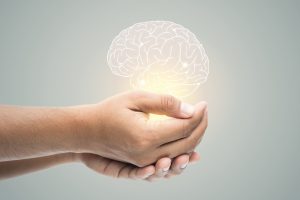The Road Ahead-The Evolution of Learning and the Four Impacts on Education Amidst the Changes Brought by COVID-19

COVID-19 resulted in significant changes in the education landscape, some of which were not previously seen. Education delivery and strategies are being reexamined across the country as a result of this paradigm shift to online and remote learning.
Schools across the First Coast Region have responded with creativity and innovation. Despite this, emotional and stress-related factors have added an additional layer of challenges to stakeholders in the education system. This new level of emotional stress is creating a challenge that is continuing and is unlike other forms of emotional stress within a school setting.
As the Delta and Omicron variants have demonstrated, life during a pandemic is anything but predictable. Change, adaptation, mandatory adjustments, new policy mandates, re-assessment of prior policies, workplace shifts and the overall re-thinking of previously held viewpoints are common terms and phrases used to describe how life has changed amidst a global pandemic.
Virologists believe that our post-pandemic world may need to always be prepared for a new variant. Given this warning, now is the time to realize that changes due to COVID will need to be incorporated into our longer-term planning.
So far, what have we learned and what might we anticipate as a result of our experience with the pandemic?
First, some of our previous beliefs that were seen as a “must” for “good” education should be re-examined. These include the notion that location and/or environment are necessary for specific sorts of educational practice, select events, chosen pedagogies and other educational ideologies. When forced to make changes, our educational systems have had to adapt, despite the fact that previous methods, techniques, environments and other approaches are not invalid.
Changes have revealed the resilience and creativity of school systems, administrators, faculty and students. Great concern exists for the loss of certain types of classroom learning, but innovation and new learning can allow us to build on various models we now know can be effective.
Second, the need for highly qualified teachers, instructors and school social workers and counselors will be even more of a reality. The pandemic has accelerated shortages of personnel and with the stress factors now being felt by those who are in the system, it will be a challenge to make sure vital services are covered. Innovations will help to strengthen our ability to meet the psycho-social needs of our students.
Third, the question of educational quality is also being redefined. There is greater opportunity for serious discussions about what ‘quality’ is in education, how we adequately assess educational outcomes and to what do we compare strongly held assumptions that may or may not be valid in a post-pandemic world. An additional point of concern is the “under connected” or what some are calling “the digital divide.” These are students who have limited access to digital learning and are often from lower-income families and areas with limited infrastructure. Research will be essential in determining best practices and next steps.
Fourth, the pre-pandemic financial models that built and maintained schools at every level are in the process of being re-examined. Keeping up with the rate and amount of change has been very difficult, yet encouraging experiences are emerging that may help stretch limited resources to serve more students effectively. Innovation in classroom delivery through digital media, outdoor classrooms and other venues may provide great learning experiences in cost-effective ways.
The tragedy of death and illness is devastating when it takes place in a school where close relationships are a hallmark of a positive school experience. We must encourage and celebrate the innovators across education that have kept our schools, academies and universities moving forward.
As we look ahead to the next decade, the COVID-19 pandemic will be remembered as a defining moment for all of us. Now we must turn our attention to the ways in which we can continue to deliver quality education. Change can be difficult and, at times unwanted, but it can help to spur innovation and creativity to secure desired outcomes.
May this timeless reminder from Martin Luther King Jr. inspire us as we move forward: “Education must enable a man to become more efficient, to achieve with increasing facility the legitimate goals of his life.”
Education and advancement professionals at BrightDot are assisting an array of organizations as they move through the issues imposed by the pandemic. Many lessons are being learned daily as to what effective strategies work and when to implement. BrightDot stands ready to assist so that a given organizational mission can be accomplished!









